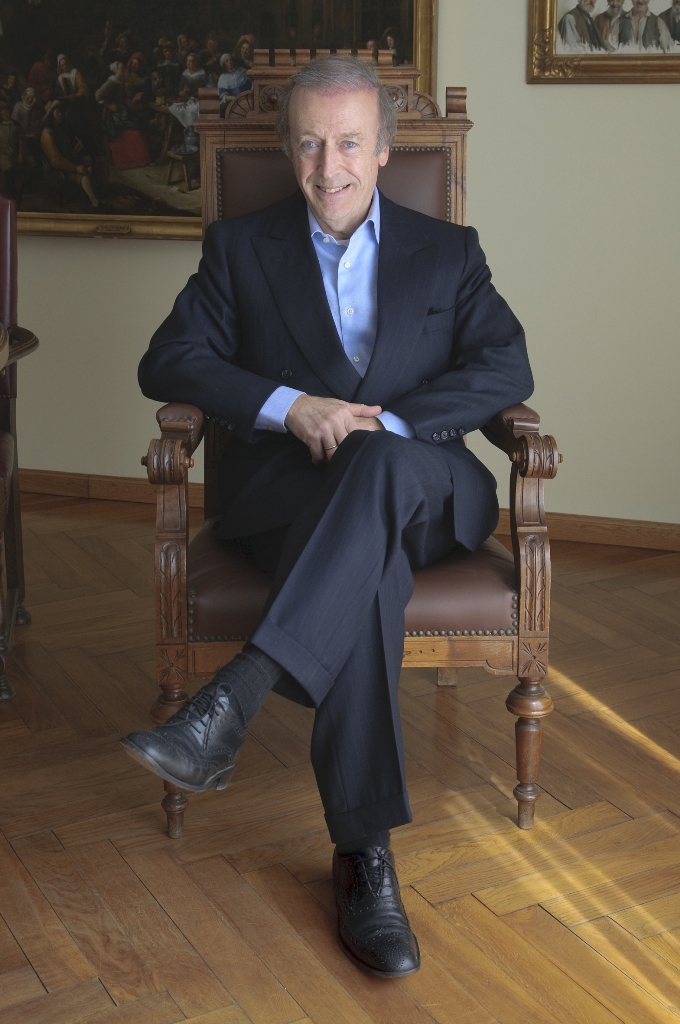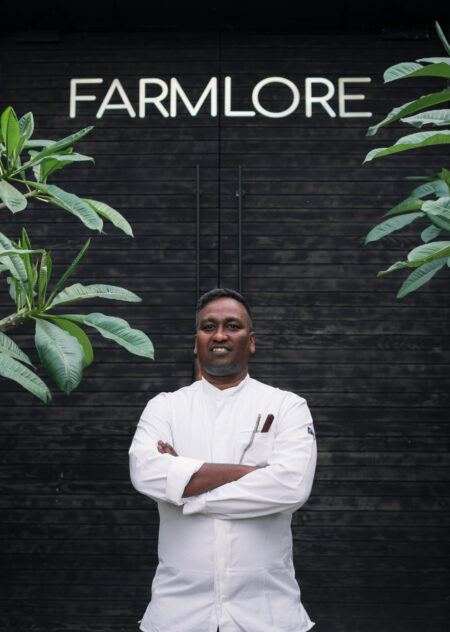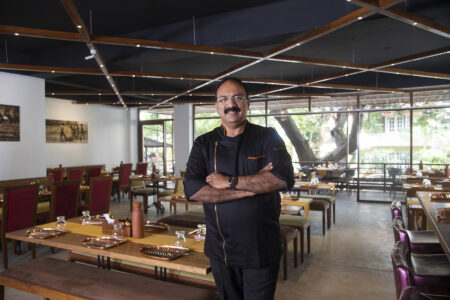Miguel Torres, charismatic, exuding a quiet confidence, moves easily amongst the guests gathered at the dinner hosted by the Leela Palace, Bengaluru. The only time he becomes intensely focused,to the exclusion of everything else,during the course of the evening, is when his wines are about to be presented. He double checks with the representatives from Prestige winesto ensure that the reds are suitably chilled, a must, he elaborates, for the early summer temperatures that we are experiencing here. The dinner is exquisitely cooked and plated, and on each table are slender bottles of El Silencio Picual, a distinctive Torres cold pressed olive oil, for us to sample.
Highlights of the evening include the 2010 Gran Sangre De Toro with its aromas of berries, notes of cloves, peppers and velvety palate paired with Sweet Potato and Egg Yolk Ravioli, roasted Ceps, Duck Confit and Chorizo with spiced sauce, followed by the classic Mas La Plana 2008, all truffles, toast and red berries, drunk with Venison Loin with Bolognaise, Celeriac Cream and Truffle Onions with Blackcurrant and Chocolate.Through the run up to the dinner, there have been several queries from Mr. Torres to the restaurant to ensure that the details were just right. Something of a perfectionist, he has not left much to chance.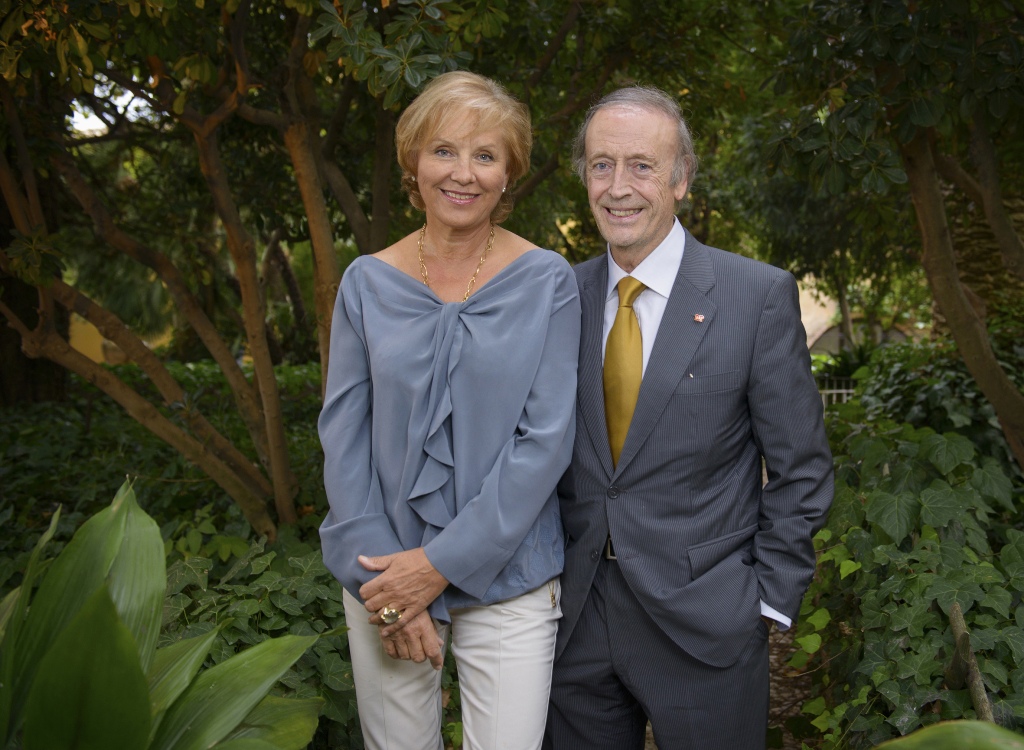
His brief introductions to the wines we drink linger over the poetry and emotion of each creation, rather than technical details of varietals and blends. Heurges guests to close their eyes, and ‘speak to the wine’, to form their own impressions.Miguel Torres conducts himself with such modesty, spending time at each table in turn, that we almost forget that he is one of the most highly regarded persons in the world of wine, the man who has received a slew of international honours from the wine industry, including Wine Enthusiast’s Lifetime Achievement Award 2012, Decanter’s Man of the Year,2002, and was a founding member of the Primum Familiae Vini, a group of the world’s leading wine families.
Mr. Torres has recently stepped down as General Manager, making way for his son, Miguel Torres Maczassek, the 5th generation of the family to head the business.With a presence in 160 countries, and vineyards and wineries in Chile and California, besides Spain, Torres owns 2,432 hectares spread over these locations, and employs 1300 people. Acutely conscious of the sensitivities of succession, and the inherent strengths and weaknesses of a family run business, with the same foresight that underlies his winemaking, he has planned designations carefully – new responsibilities have been created for his daughter, Mireia,Managing Director of Torres Priorat and Jean Leon, where she reports directly to a Board of Directors consisting of both family members and outsiders, ensuring that the 5th generation of winemakers come into their own without the troubled legacies of similar family owned businesses. His partnership with his German born wife, the artist Waltraud Maczassek, extends to the world of wine – for 25 years, she oversaw the export of Torres wines to Germany, one of their most important markets today.
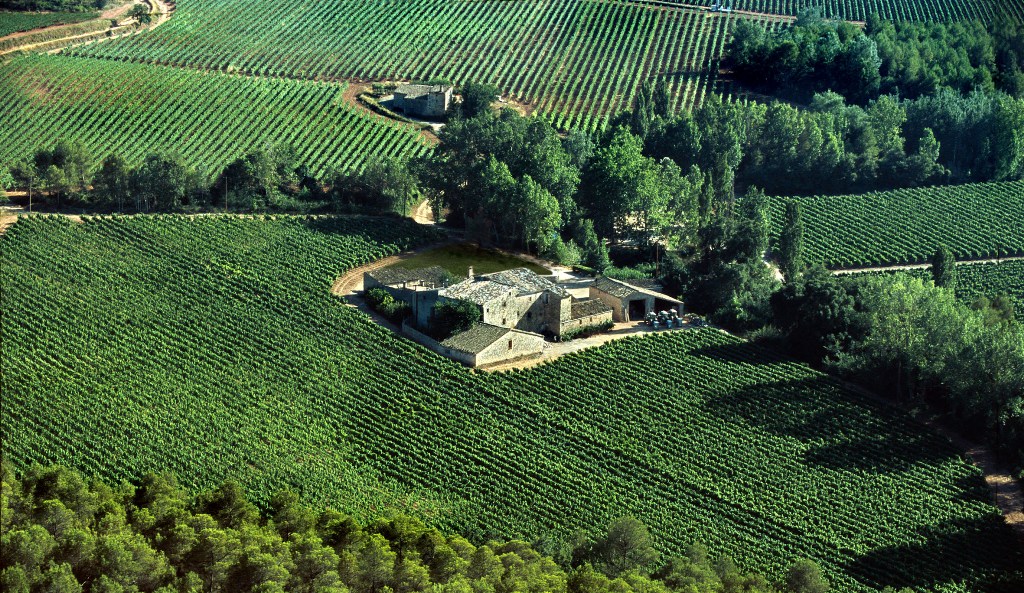
Visionary is a word that is frequently used in association with Mr. Torres and, when he reflects on what he considers some personal highlights from an extraordinary life in wine, spanning over 50 years, it becomes apparent why. In the mid-‘60’s, he began to produce Viña Sol using new techniques, vinifying in stainless steel tanks, using temperature control and a modern style that was welcomed by the market. His pioneering move to plant varietals new to Spain, such as Cabernet Sauvignon on the Mas La Plana estate, having first taken the family’s opinion on the decision, would have a major impact on the business: in a defining moment, at the 1979 Gault Millau wine Olympics, the Torres 1970 Gran Coronas Reserva Cabernet (later re-labeled Mas La Plana) would beat the 1970 Chateau Latour and other French heavyweights to the gold, to become a historic, flagship wine, catapulting Torres to international fame and recognition. It continues to hold the attention of critics, Jane MacQuitty recently writing of it as “ Torres’ glorious Mas La Plana: the best value star by far” and Martin Moran referring to the 2007 as “the best Cabernet I’ve tried in ages.” The principal wine exporter from Spain, over the decades, the range of wines grew to include single vineyard wines, as well as popular brands.
But all this came with years of struggle and decades ofpatience. The turbulence and political uncertainties of Franco’s Spain prompted his father, Miguel Torres Carbo, to send him to explore the possibilities of viticulture in other countries. An invitation from a friend of his university days in Dijon took him to Chile where, the perfect climatic conditions, he recounts, won over Argentina. Torres would go on to play a historic role in the progress of winemaking in Chile. There were other far-sighted moves – the planting of the California vineyards, run by his sister, Marimar, with selected rootstock that escaped the phylloxera that swept through California, and the early, important inroads into the Chinese market in 1994, after the death of his father, and India in the mid-‘90’s, to name a few.In India, Torres have had a longstanding association with Prestige Wines and Spirits, associated with the import of top quality wines.
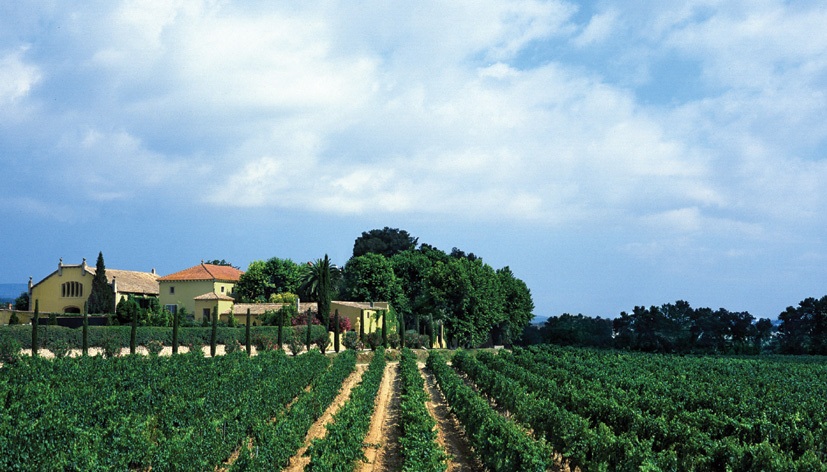
Behind all these path-breaking innovations and activity loomed the formidable presence of an autocratic father, unwilling to hand over decision making to his son and, while he acknowledges the support of his family and the Torres team at every stage of their growth, much of the credit for holding the family together must go to him. 1982 brought something of a crisis, when a frustrated Miguel Torres took a sabbatical year to pursue oenology and viticulture at Montpellier. When he returned, he found his father as implacable as ever – the choice before him was to break away from the family, one that he was unwilling to make. So, he says in a characteristically mild manner,he had to ‘swallow his pride and start all over again’. This same steely determination made him the man who changed the face of Spanish winemaking, and put the wines of Spain on the world map.
What is most striking about Miguel Torres is the tremendous integrity that he brings to all his decisions and actions, whether in family matters, or in winemaking and community practices. One has only to look at the Torres Earth programme, where 10 million Euros have been invested over a 10-year period into renewable energy projects, eco-efficient transport and several other such initiatives.
A deep respect for, and sensitivity towards the land and its history led to one of Torres’ most fascinating projects – the revival of unknown or lost varietals that had survived the devastating phylloxera of 1863 Europe. Advertisements seeking information about unfamiliar vines led to the discovery of 32 varietals in Catalonia alone. Meticulous and systematic evaluation and analysis means that ‘lost grapes’ like Garro have been revived and incorporated into the Grans Muralles blend, a matter of great pride to Miguel Torres. This connectedness to the earth extends to other important initiatives as well.A viewing of the film,An Inconvenient Truth,had a tremendous impact on his views on global warming and climate change, and spurred him to create a philosophy within the company that encouraged people to propose ideas, and participate in tackling climate change, a top priority on their agenda. Fair Trade certifications in Chile, organic viticulture in California, vinotecas to spread a wine culture and a commitment to community support, that also extends to India, has become a hallmark of the Torres identity. Generous donations to the Vicente Ferrer Foundation in Anantapur, Andhra Pradesh initiated the building of schools and occupational education for women.
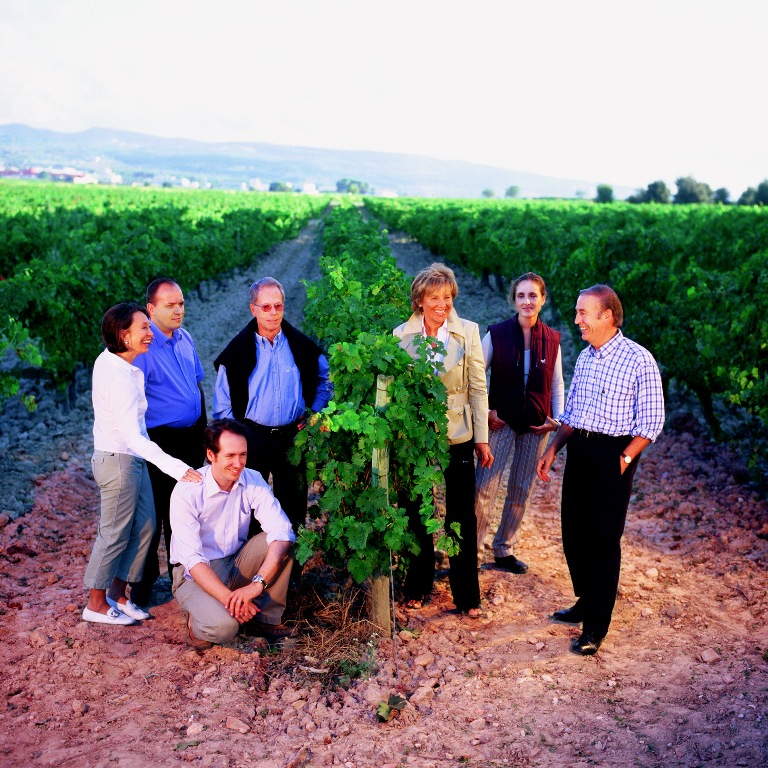
Miguel Torres is extremely generous with his time, handling this interview for Sommelier Magazine with patience, tact, genuine interest and unfailing courtesy. He is above all, a tireless ambassador for Torres, who has won enormous respect from the wine industry, his peers and, I suspect, everyone with whom he interacts. Multi-faceted, he has written several books on wine, and at the end of a lunch hosted at Caperberry restaurant, he presents a copy of his much translated and reprinted classic, Vineyards and Wines, to Chef Saha.
The path-breaking innovation, experimentation,modernization of Spanish winemaking, risk taking and tremendous hard work, juxtaposed with tradition, a rootedness in the land and the family are uniquely Torres in character. His self-discipline, patience andgreatmodesty havean almost monastic quality to them, lightened with a wonderful sense of humour. Ultimately, it is his integrated vision and the genuineness of the values that he endorses that win us over. His concluding observation sums up the philosophy by which he has created a legend: “We need to respect the values and vision of the family while looking to be among the top 10 wine companies in the world, in terms of prestige.”
This article appeared in Sommelier India Magazine, April-May 2014
Image Credits: Courtesy Torres Wines

